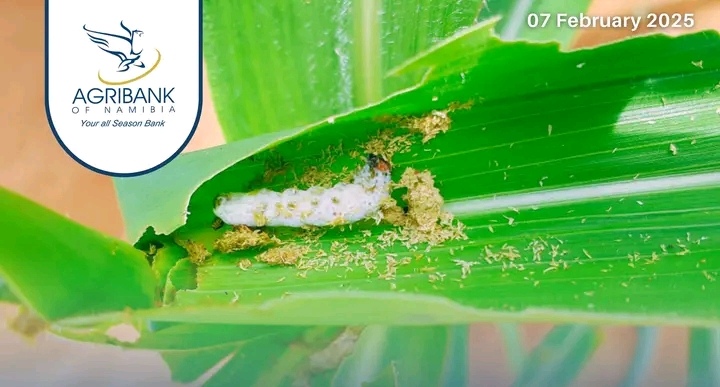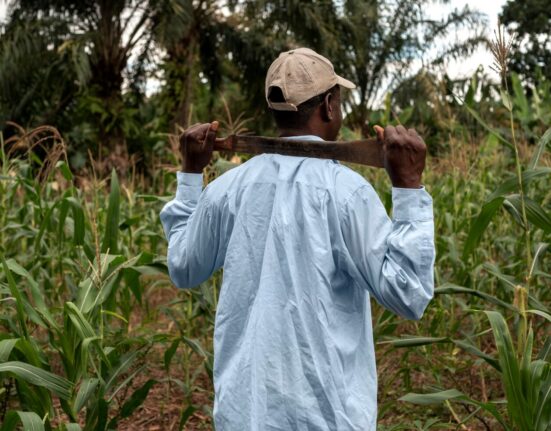Namibia Battles Fall Armyworm Outbreak: Agribank Offers Key Solutions. The recent outbreak of Fall Armyworms in Namibia’s North-Eastern Zambezi Region has raised concerns over food security, crop failures, and economic impact on local farmers. The infestation threatens maize and other staple crops, prompting Agribank of Namibia to provide critical guidance on pest control and prevention strategies.
According to Hanks Saisai, an AASD Technical Advisor on Crops and Poultry, pest outbreaks can result in financial losses, food shortages, and disruptions to local economic activities. Farmers are urged to adopt sustainable pest management strategies to minimize damage and protect their yields.
One of the key recommendations is to implement crop rotation. Since Fall Armyworms primarily target maize, planting alternative crops helps break the life cycle of the pests and reduce their spread. Additionally, scouting fields regularly is essential for early detection and response. Farmers are advised to inspect their crops daily or weekly to identify signs of infestation and take timely action.
Agribank also highlights the use of biological and chemical pest control measures. Bio-rational pesticides, such as Spinosad and Spinetoram, are effective in killing larvae within 24 hours. Other recommended solutions include neem-based products, Bacillus thuringiensis, and selective pesticides like spinosyns and emamectin. Farmers can also use natural handpicking methods in small-scale operations to remove larvae before they spread.
With drought conditions creating favorable environments for pests, Agribank urges farmers to prepare by ensuring moist soil conditions for plant health and reporting outbreaks to Agricultural Development Centers (ADCs) for further support.
As Namibia continues to combat this pest invasion, record-keeping and collaboration with agricultural authorities will be crucial in mitigating future outbreaks and ensuring food security.
Join 'Namibia Today' WhatsApp Channel
Get the breaking news in Namibia — direct to your WhatsApp.
CLICK HERE TO JOIN









